Truth & Health
Tackle misinformation in healthcare and promote evidence-based health policies across Europe.
🧬 Truth & Health - What’s true, what’s toxic, and who decides?
A European week of learning, communication, and civic integrity in public health
🎯 What is the programme about?
Truth & Health – Youth Academy is not a seminar or a science class. It’s a hands-on civic laboratory for young people who want to understand how public health works — and how truth, trust, and evidence are protected when they come under attack.
Over five days, students explore the intersections between health, misinformation, regulation, and citizen responsibility. From vaccine controversies and tobacco lobbying to COVID-era disinformation and the ethics of medical storytelling, you’ll learn how facts are shaped, distorted, defended — and how democratic societies respond.
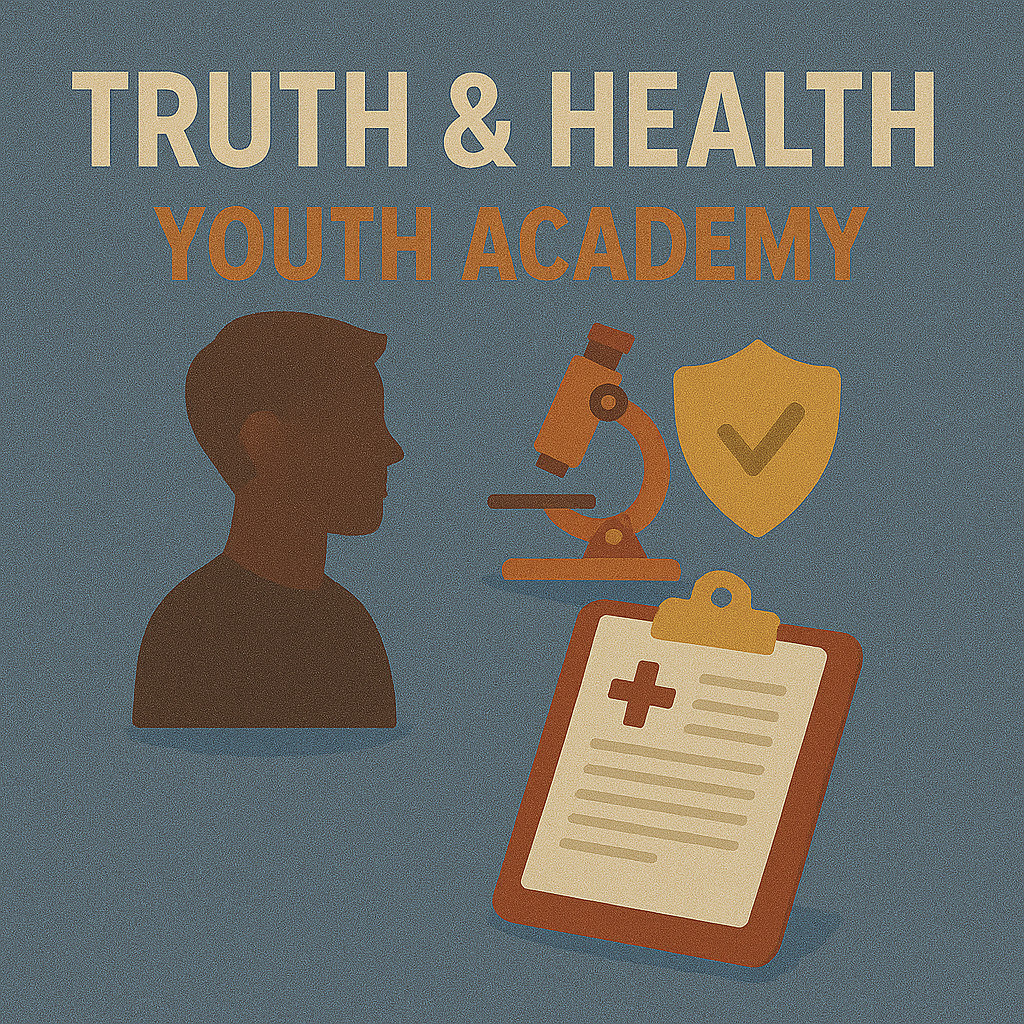
This programme is built for students who don’t just want to “learn the facts” — but to question how facts are communicated, contested, and turned into action. You’ll work in teams, debate with experts, decode real health campaigns, and design your own civic projects.
Hosted in one of Belgium’s vibrant university cities — Leuven, Ghent or Antwerp — the programme takes place in the heart of European health governance and academic excellence. From visiting NGOs and science communicators to stepping into simulations and media labs, you’ll see how the fight for public health is also a fight for public truth.
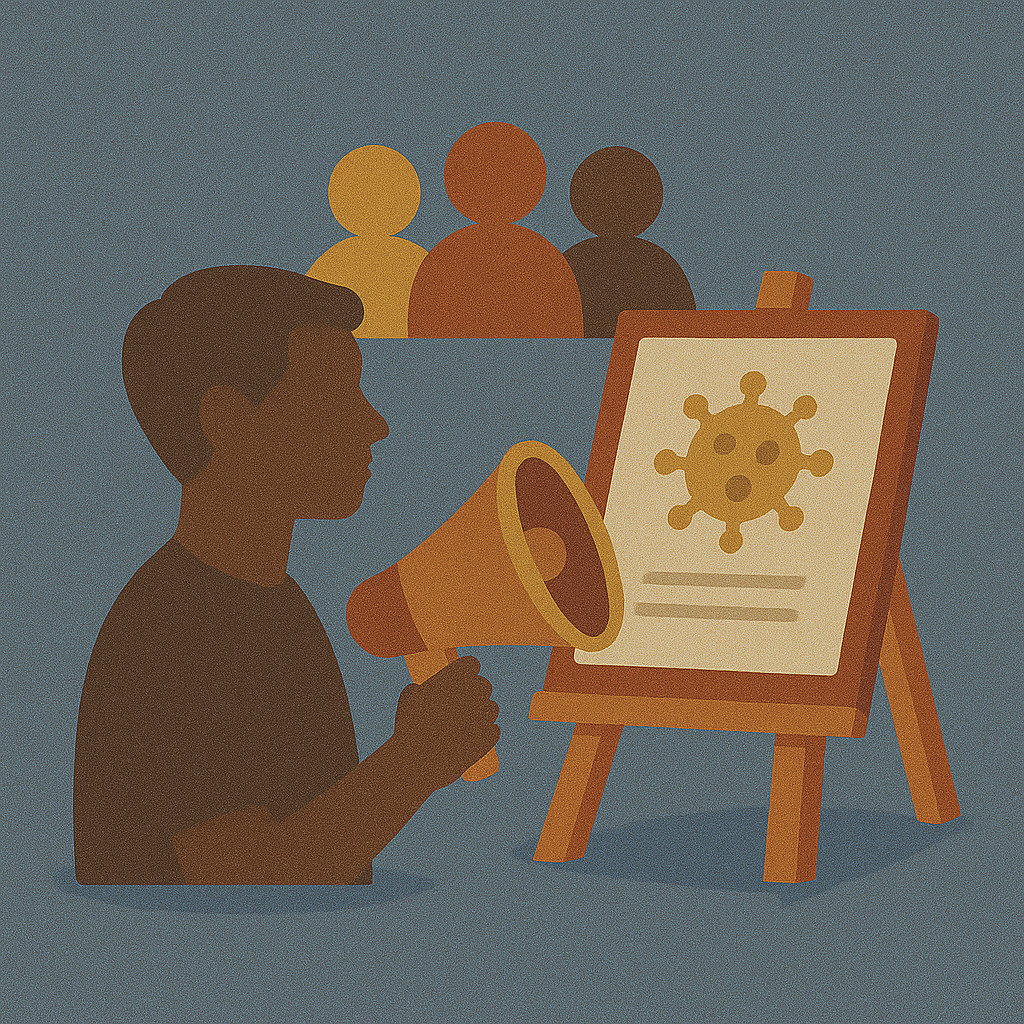
👥 Who is it for?
- High school students aged 15–18
- Interested in: science, health, media, public policy, civic responsibility, or journalism
- No previous expertise required — just curiosity, teamwork and motivation
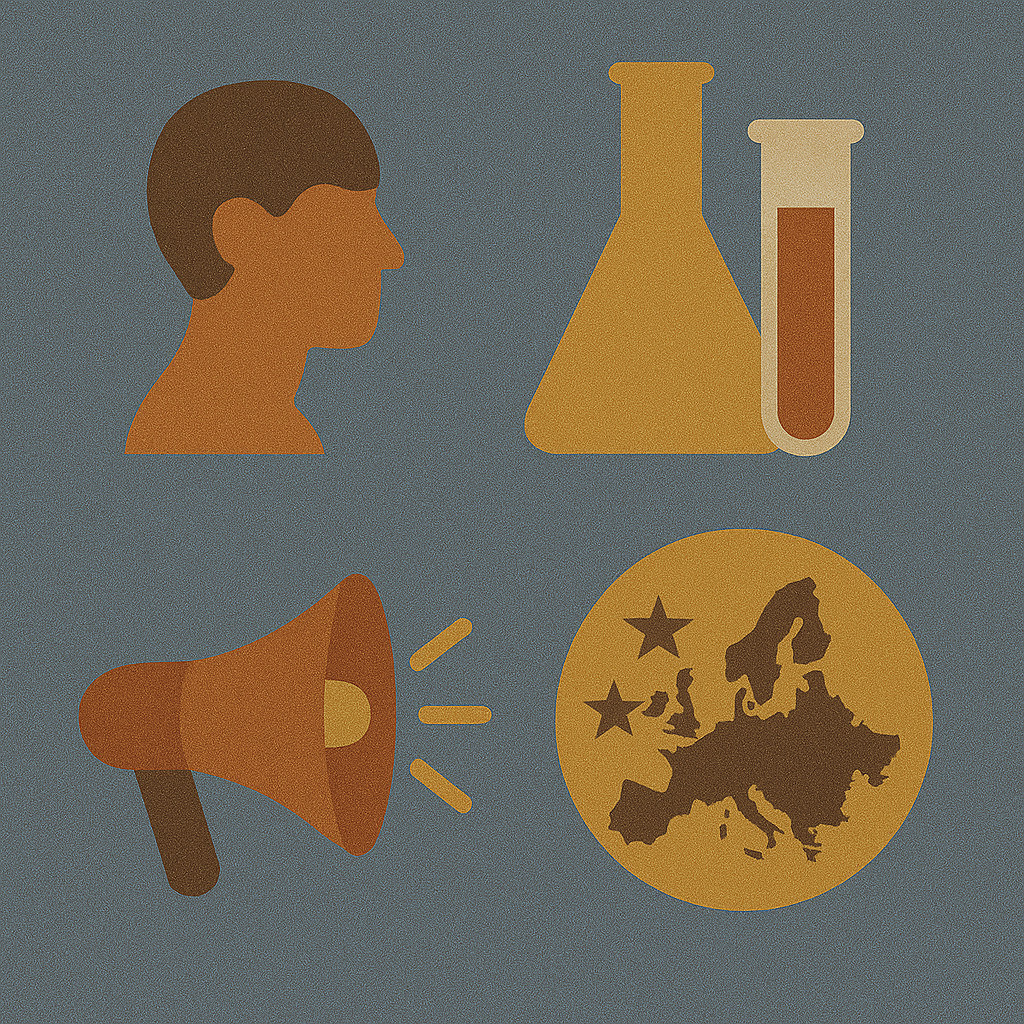
📘 What will your week look like?
Each day combines critical thinking, real-world examples, and creative challenges — designed to push your perspective and sharpen your voice.
Day 1 – What is public health and how does it work in the EU?
The first day is about grounding ourselves — not just in biology or data, but in systems, trust, and the invisible structures that keep societies healthy.
You arrive in a new setting, surrounded by unfamiliar faces and familiar questions. Some of you have lived through a pandemic. Others are just beginning to understand how public health affects everything from the air we breathe to the news we read.
We begin by unpacking the concept of public health. Not just as a system of hospitals and doctors, but as a shared responsibility — between governments, scientists, institutions, and citizens. What does it mean for a society to care for its people? What happens when it fails?
Through interactive discussions and small group work, you explore how public health decisions are made in the European Union. You look at real-world challenges — from COVID-19 to vaccine campaigns — and see how scientific evidence, political pressure, and ethical dilemmas often collide.
There’s no lecturing, no memorizing — just questions that matter and space to think. You take part in a simulation where you must make urgent decisions with incomplete information: lockdown or not? Prioritise the economy or protect the vulnerable? You start to feel what it’s like to manage risk — and responsibility — in real time.
In the afternoon, we visit a place that tells the story of public health in Europe — maybe a medical museum, an innovation hub, or a memorial to past health crises. You learn that health isn’t just a personal issue — it’s a political and historical one.
By the end of the day, you’re not just learning what public health is. You’re asking harder questions: Who decides what’s safe? What role do I play in keeping others healthy? And what happens when trust breaks down?
That’s where your journey begins.
Day 2 – Regulation vs. lobbying: who shapes the rules?
The second day takes you behind the scenes — not into a hospital, but into the places where health decisions are drafted, debated, and contested. You begin to realise that health policy isn’t only about what science says — it’s also about who gets heard, what interests are at stake, and how power operates in public.
You start the day by exploring how the European Union regulates health-related products and industries: tobacco, alcohol, food labelling, vaccines, supplements. What looks like a technical question — should this product be approved or banned? — quickly becomes political.
You learn about key EU laws, precautionary principles, and the role of science-based agencies. But then comes the twist: what happens when powerful companies push back? What tools do they use — lobbying, legal threats, sponsored research, misinformation? And how can policymakers protect public health when the pressure is high?
Through group sessions and a high-stakes simulation, you step into the shoes of stakeholders: industry reps, consumer advocates, EU officials, journalists. You argue, compromise, push — and begin to feel how difficult it is to create health policy that is effective, fair, and evidence-based.
In the afternoon, you meet someone who’s been in the real arena — a public health official, an EU policymaker, or an NGO watchdog. They share what it’s like to work at the intersection of science, regulation, and corporate pressure. You ask them what’s possible, what’s broken, and what gives them hope.
By the end of the day, you’re not just learning what the rules are — you’re asking who shapes them, why, and what it takes to defend the public interest when the stakes are high and the system is complex.
And that question stays with you.
Day 3 – Health disinformation: decoding the danger
By now, your thinking is sharper. You’ve looked at how public health systems work, and how decisions are made — but today you step into more dangerous territory: the distortion of truth. Not just misinformation by accident, but disinformation by design — and the real-world impact it has on lives, trust, and democracy itself.
The day begins with a simple, unsettling question: Why do so many people believe things that aren’t true?
You explore real examples — miracle cures, anti-vaccine conspiracies, false claims about cancer treatments or pandemic hoaxes. Some are obvious. Others are subtle. You learn that the danger isn’t always the lie — it’s the feeling that no one can be trusted.
Through team games, myth-busting sessions, and narrative analysis, you uncover the techniques used to manipulate: emotional triggers, repetition, false authority, algorithmic amplification. You see how disinformation thrives not just on social media, but in moments of fear, division, and uncertainty.
Then you turn the tables. Working in small groups, you begin to design your own counter-campaign. You craft messages that are clear, empathetic, and grounded in facts — not to shame or argue, but to inform, connect, and build trust.
In the afternoon, you meet a guest from the frontlines — a science communicator, a fact-checker, or a journalist working to push back against false narratives. They tell you what it takes to hold the line when noise overwhelms truth — and how small interventions, done well, can change minds and save lives.
By the end of the day, you understand that health disinformation isn’t just a technical problem — it’s a civic one. And you’re no longer asking, “Who’s spreading lies?”
You’re asking, “How do I make the truth easier to find — and easier to believe?”
And that’s when your role becomes real.
Day 4 – Communicating health: ethics, empathy, and impact
You’ve explored how health systems are built, how policies are made, and how truth can be manipulated. But today, the focus shifts — to you, and how you can shape what others believe, feel, and do.
Because public health doesn’t only depend on science. It also depends on storytelling.
The day begins with a challenge: What makes people listen — really listen — when it comes to their health?
You explore how information becomes action: how fear, empathy, trust, and identity influence how messages are received. You learn about audience segmentation, visual framing, and the difference between speaking to inform and speaking to connect.
In short, you begin to see public health communication as an act of citizenship — not just broadcasting facts, but understanding your audience, your purpose, your voice.
Then it’s your turn to create. In teams, you design your own public health message. It could be a podcast episode, a short video, a social media campaign, a poster series, or something completely new.
What matters isn’t the format — it’s the message. Is it credible? Is it fair? Is it ethical?
Throughout the day, facilitators and mentors challenge you to think more deeply:
- Are you simplifying or oversimplifying?
- Are you empowering, or are you scaring?
- Are you telling the truth, or telling what people want to hear?
In the afternoon, you meet someone who has faced these dilemmas in the real world — a science communicator, a public health official, a journalist, or a young campaigner. They share the behind-the-scenes of shaping public health narratives: the successes, the backlash, the pressure to be both persuasive and accurate.
By the end of the day, your team stands up and presents. Not just a product, but a position: this is what we believe people need to know — and this is how we choose to say it.
And suddenly, you’re not just studying communication. You’re practicing it.
You’ve become a voice in the conversation — one that others might one day remember.
Day 5 – The informed citizen: action, courage and credibility
The final day isn’t about new content — it’s about what you’ve built, what you now see differently, and what you might choose to do next.
You arrive with your project ready: your message crafted, your voice tested. But the real test is not the presentation — it’s the reflection.
What does it mean to speak about public health with both facts and fairness?
What will it take to keep speaking — when the noise returns, when no one listens, when it gets personal?
In the morning, your team takes the floor. Each group shares their campaign, their creative piece, their story. There are no grades, no rankings — just feedback, clarity, recognition. Some messages are bold. Others are quiet but powerful. All of them matter.
Then we pause — not to end, but to deepen. You look back over your week:
- The dilemmas you faced in simulations.
- The tools you gained.
- The emotions you felt.
- The moments where something shifted.
You reflect on what it means to be an informed citizen in a world where health decisions are complex, truth is fragile, and trust is earned.
Not just a student who learned about disinformation — but someone ready to challenge it.
Not just a participant in a programme — but a contributor to a healthier, more honest public space.
In the afternoon, we mark your transition: a closing gathering, a certificate, a few words from those who’ve walked this path before.
You become part of the Youth for Health & Truth network — a growing community of young Europeans committed to civic honesty, public health integrity, and responsible communication.
And when you leave, you carry something no certificate can show:
- The courage to speak when others stay silent.
- The skill to communicate clearly, ethically, and with empathy.
- The understanding that protecting health starts long before the hospital — it starts with information, with education, with you.
And now, you’re ready.
🧩 Learning approach
- Simulations and real-world case studies
- Interactive lectures and guided visits
- Peer learning and intercultural dialogue
- Group challenges and public speaking
- Expert exchanges in an informal setting
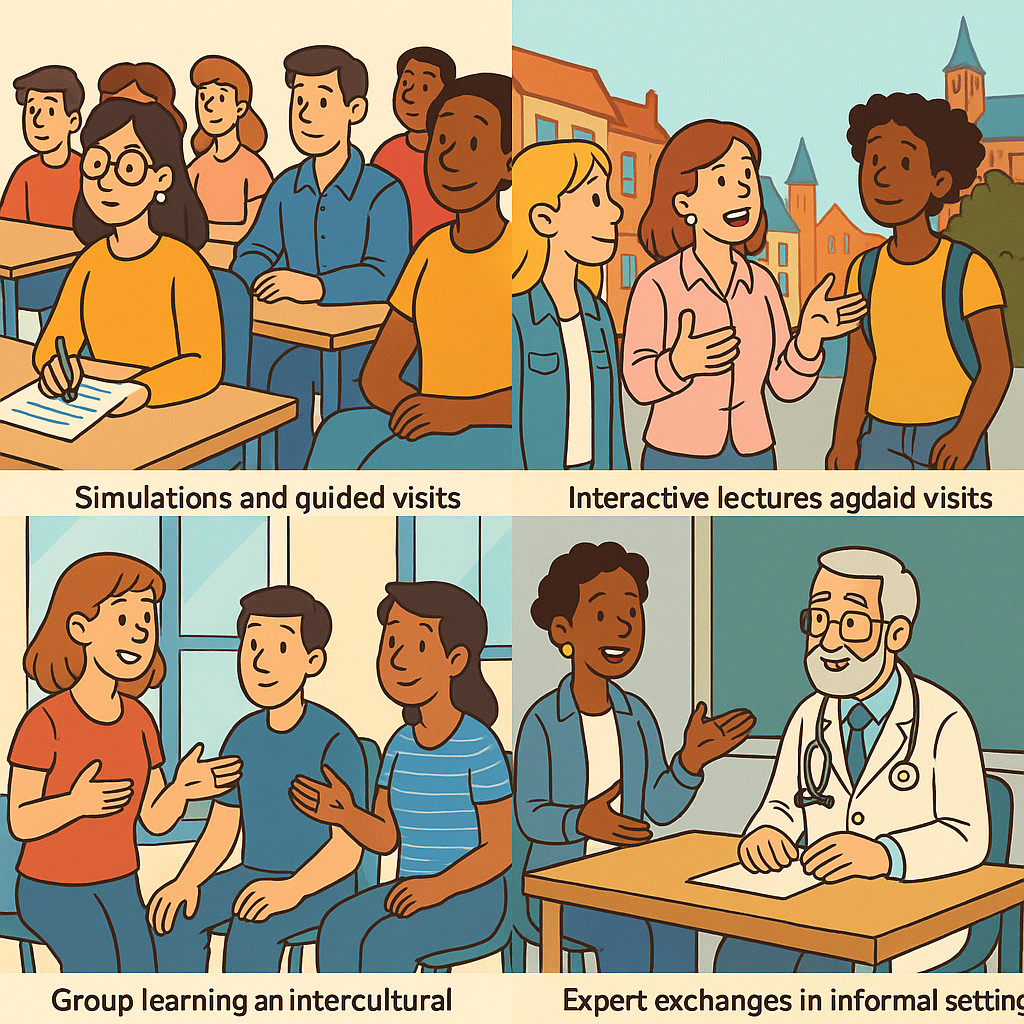
🗣️ Guest speakers (based on availability)
Participants will meet inspiring professionals such as:
- EU and constitutional law experts
- Justice researchers and civil society leaders
- Investigative journalists and anti-corruption watchdogs
- Young democratic activists and legal scholars
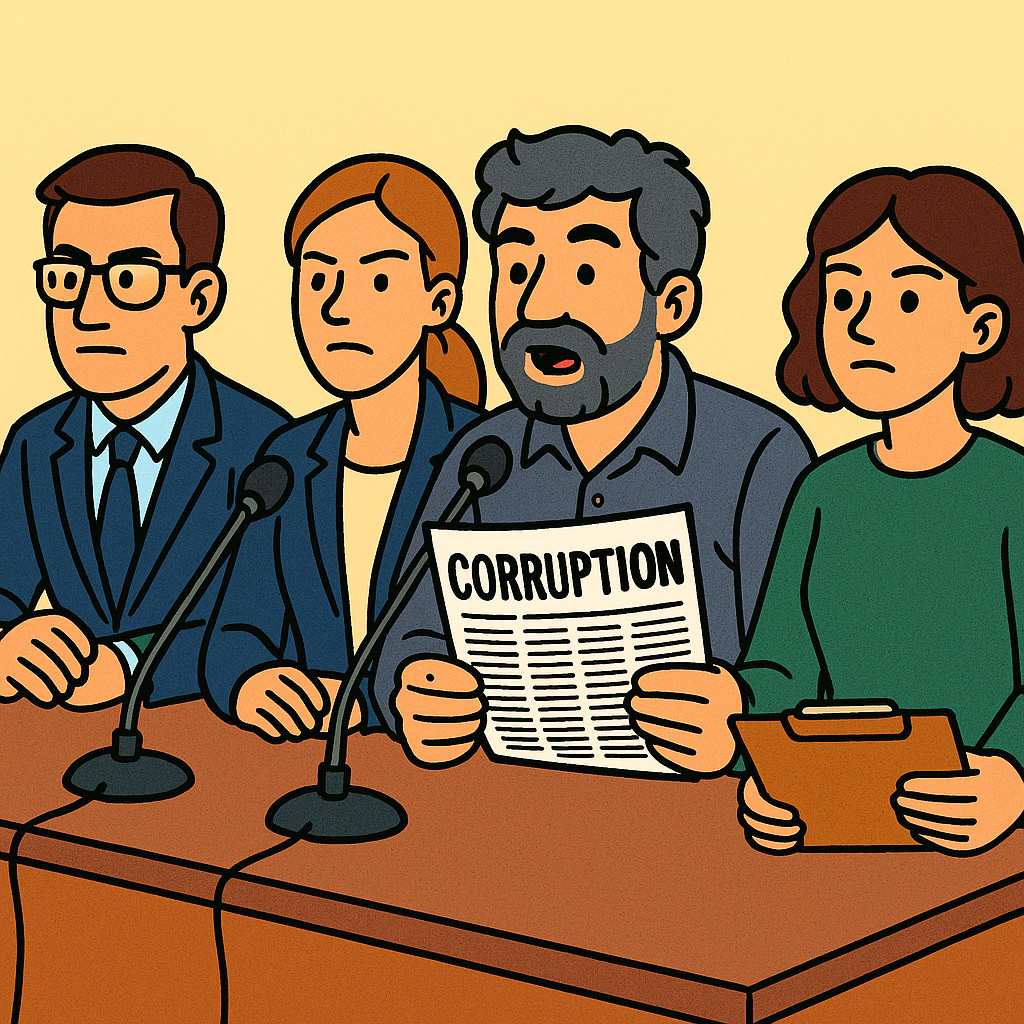
📚 Learning materials
- Health in the EU guide
- Selections from EU legislation on tobacco, vaccination and mental health
- Case studies of misinformation campaigns
- Visual and teamwork tools for building your own public health initiative
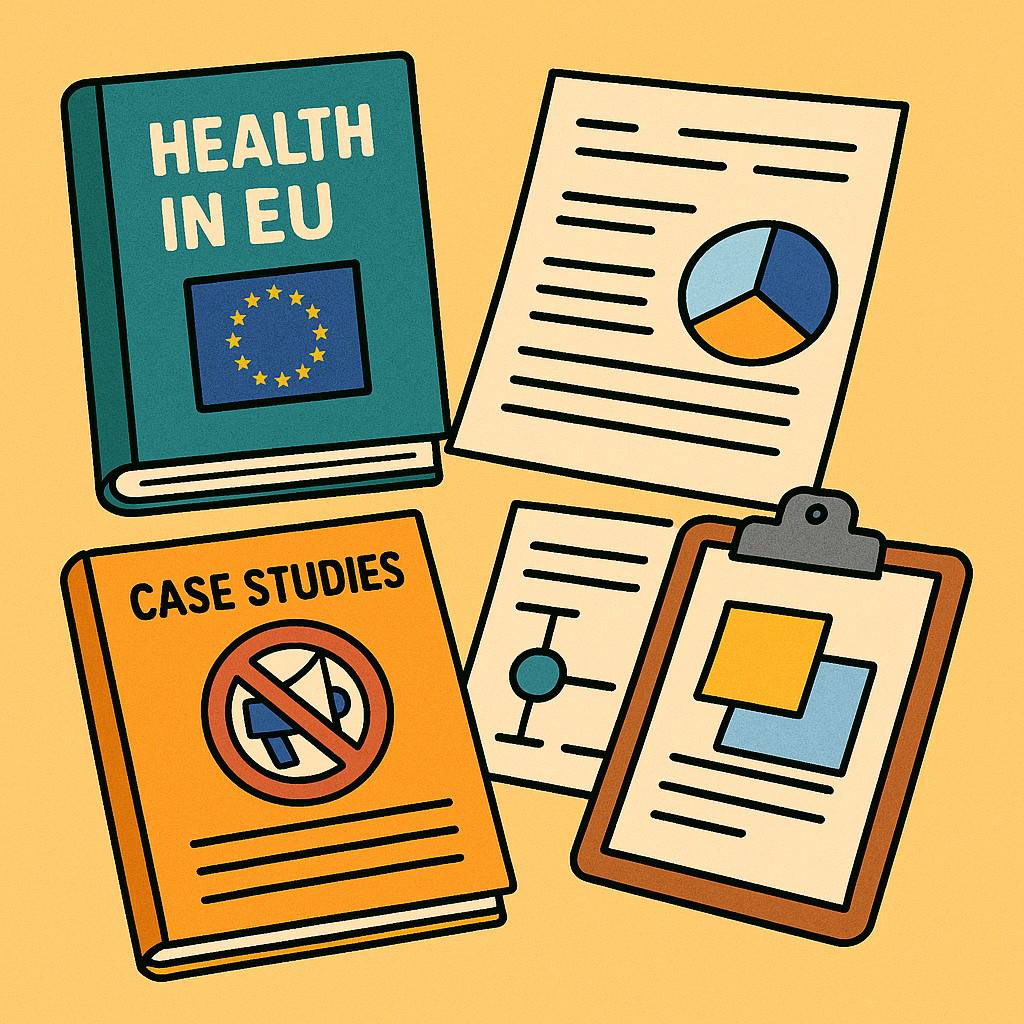
🎓 What will students gain?
- Certificate of participation
- Civic project portfolio (essays, reflections, campaign ideas)
- Potential to replicate their project locally, in school or community
- Entry into the Eunited.Brussels network for future collaboration
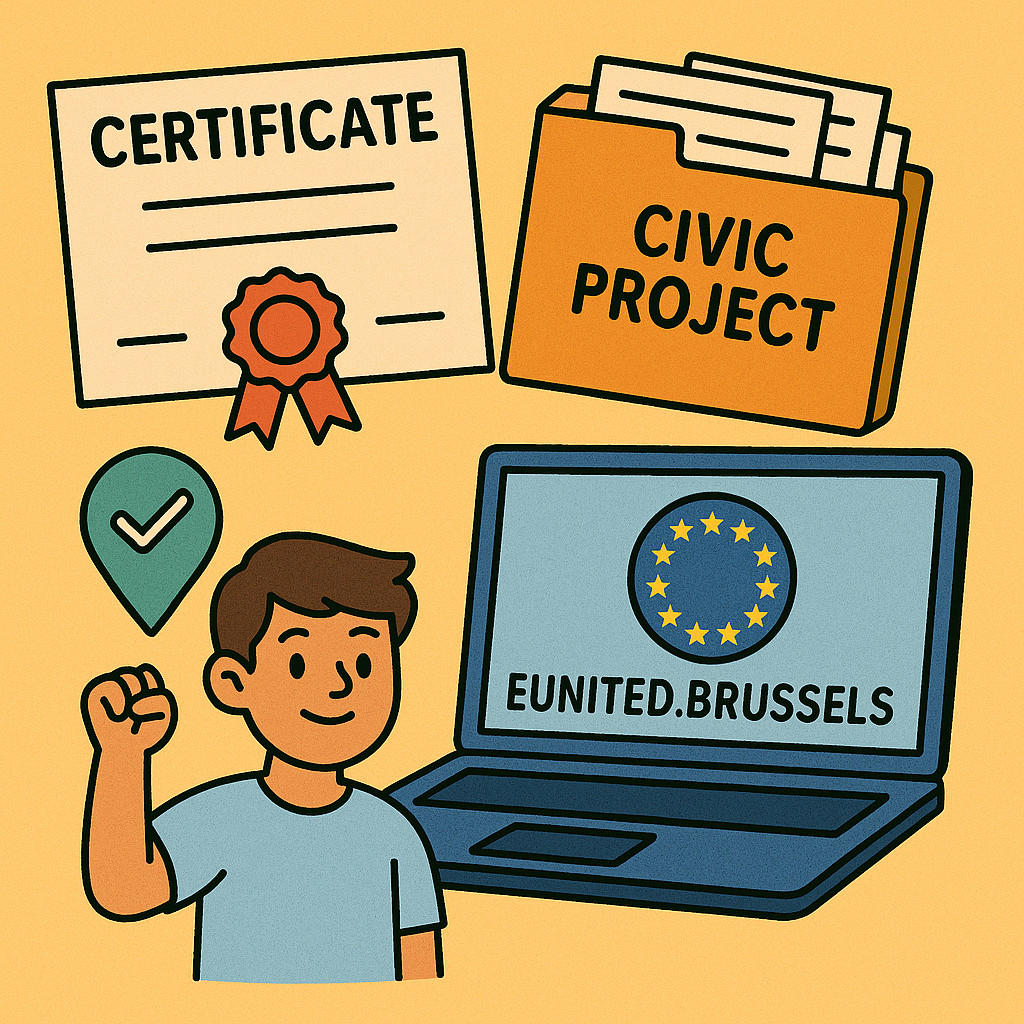
🔧 Practical details
- Hosted in Leuven, Ghent or Antwerp (Belgium)
- Programme delivered in English (Romanian support available)
- Students attend in groups and are accompanied by teacher-coordinators
- Educational, safe, and fully supervised structure
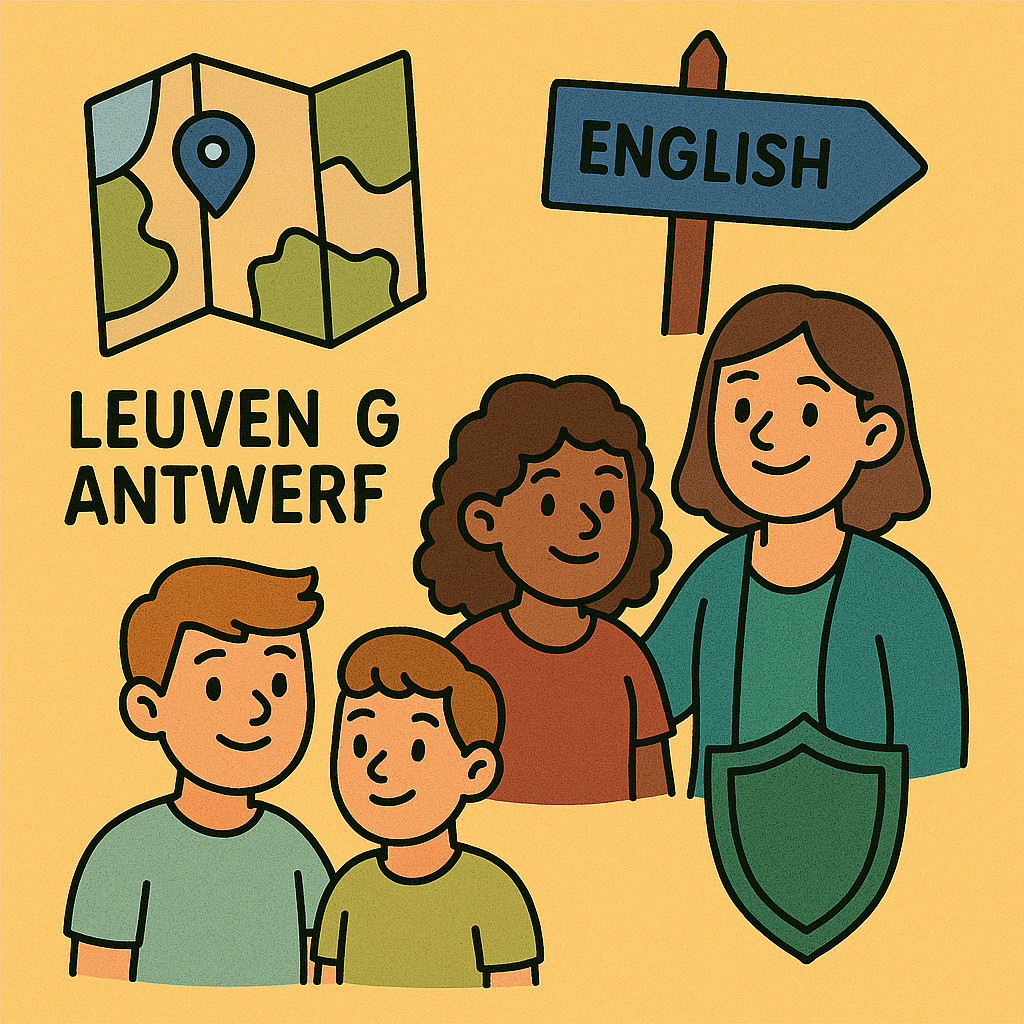
📩 Want to take part?
Whether you are a student, teacher, or school leader interested in joining or partnering with us, reach out.
We’d love to hear from you.
Are you ready to go from learning about democracy to defending it?
Learn. Debate. Resist. Repeat.